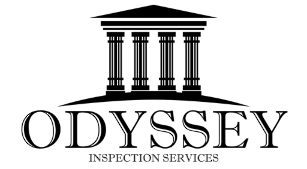We report the general condition of the property and property components. Here are a few items that we look at during the home inspection: • Roof covering materials • Roof structures and attics • Attic insulation and ventilation • Plumbing systems • Electrical systems • GFCI’s and AFCI’s • Built-in appliances • Heating systems (depending on outside temperature) • Air conditioning systems (depending on outside temperature) • Water heating systems • Foundations • Crawl spaces • Interior walls, ceilings and doors • Exterior walls, doors and windows • Grading and drainage • Gutters and downspouts • Porches, balconies, decks, and carports • Vents, flashings and trim • Skylight, chimney and other roof penetrations • Fascia and soffits • Fireplaces and chimneys • Fireplace damper door and hearth • Garage doors, safety sensors and openers • Interior and exterior stairways • Walkways and railings • Presents of Smoke and carbon monoxide detectors
While we do inspect several main components of a home within our standard inspection, there are items that we do not inspect and some of those items are listed below, please inquire about inspecting these items for an additional fee: • Determining and testing of lead based paint • Mold testing • Termites/pest/insects inspecting • Biological and environmental hazards inspecting • Low voltage systems (security, cat5, phone, etc.) • Pool and spas • Well systems • Septic systems • Solar panels • Outbuildings and barns • Fences • Window blinds • Water softeners • Sprinkler systems
It’s best to learn as much as you can about the home prior to your purchase. An inspection provides a much clearer understanding of the property condition and helps identify potential problems or issues that can be addressed upfront rather than sometime after you move into the home. Without an inspection you accept the property regardless of known or unknown defects.
Yes. We strive to be as thorough as possible however we cannot inspect items that we cannot see (such as items behind walls, under floors, in ceilings, etc.) and areas we cannot physically access during the inspection.
We currently do provide certified termite inspection services, if a termite inspection is needed. Termite inspections start at $100 for homes up to 2,000 sq/ft.
If you are not 100% satisfied for any reason with the quality of the home inspection, tell us before receiving your report and we’ll either make it right or we will reimburse you your full inspection fee.
We recommend scheduling an inspection immediately after going under contract due to time constraints during your option period – if applicable. Additionally, scheduling an inspection immediately after going under contract can allow time for repair estimates if any are needed. We offer fast and easy online scheduling available 24/7. We are even available for weekend inspections at no additional cost.
Inspections tend to be lengthy so many buyers typically attend towards the end of the inspection to get a summary of deficiency items found. It’s always best to be present, if possible, so we may review any report findings with you in person. You are not required to attend the home inspection.
A complete and thorough home inspection will typically last between 2 to 4 hours. A quality inspection should not be rushed by you, other parties (including the inspector) or any real estate agents.
No. The home inspections we provide differ from that of municipal inspections – which can fail. We try to provide you with the best information in order to help you make decisions on your home purchase. We do not fail or pass homes.
No house is perfect and most of the home inspection findings will be maintenance recommendations and minor imperfections. At times we do find major defects and safety hazards. Every situation is different and it is up to you and your real estate agent to decide how to proceed after the inspection.
In most all cases, you receive the report within 24 hours or sooner.
If you have questions after the inspection, contact us! We are happy to answer any questions you have.
The inspection report is YOUR report and we will not give a copy of the report to anyone but you without your consent. However, you will probably want your real estate agent (if applicable) to also have a copy. When you schedule your inspection, we will ask you if you would like us to send the report to any other parties.
Payment is due up front in order to secure your inspection date. Once you schedule your inspection, we will send a confirmation email.
We recommend having an inspection on any home and this includes brand new construction. Most builders are high quality builders and provide a high quality product to purchasers. Much of the house is usually constructed by sub-contractors and it can become overwhelming for both the builder and local city inspectors to keep up with the housing demand. It is great to have a third party inspector out to make sure items were not missed and completed the correct way.
When you choose to have an inspection prior to listing your home on the market, it provides a better understanding of conditions and possible defects which may be discovered by the buyer’s inspector. These items can then be addressed prior and can help remove some uncertainty which in turn can result in a competitive advantage in today’s market.
